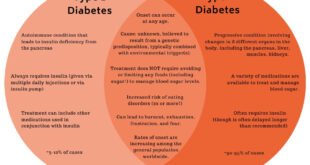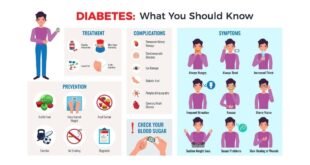It is imperative for both general health and management of diabetes and prediabetes to stabilize the blood sugar level. Here are some mostly applicable health and fitness tips that would help blood sugar regulation.
1. Balanced Diet
Complex Carbohydrates: Favor whole grains, legumes, and vegetables for simple sugars and refined carbs. Complex carbs break down slower, stabilizing blood sugar.
Fiber-Rich Foods: Use fruits, vegetables, beans, and whole grains. Fiber slows down the rate of digestion and absorption of sugar, which helps minimize blood sugar spikes.
Healthy Fats: Include sources of healthy fat in your diet such as avocados, nuts, seeds, and olive oil. Healthy fats may assist in stabilizing blood sugar values by slowing the absorption of carbohydrates.
Protein Intake: Get enough lean protein from chicken, fish, tofu, and legumes. Protein slows the absorption of carbohydrates, helping to keep blood sugar levels even.
Regular Meals: Eating small, balanced meals throughout the day may help avoid large spikes in blood sugar.
2. Regular Physical Activities
Aerobic Exercise: Engage in activities such as walking, running, cycling, or swimming. Aerobic exercise helps your muscles use glucose more effectively, lowering blood sugar levels.
Strength Training: Include resistance exercises like weightlifting and bodyweight activities (squats, push-ups). Building muscle enhances your body’s ability to store and utilize glucose.
Consistency: 150 minutes a week of moderate-intensity aerobic activity or 75-min vigorous-intensity activity, plus muscle-strengthening activities on two or more days a week.
Stay Active: Do not go prolonged periods without moving around. Going from sitting or standing every hour would help to regulate blood sugar.
3. Keep an Eye on Your Blood Sugar
Blood Glucose Meter: Make a habit of doing this regularly to monitor blood sugars. Tracking blood incorporates how the body’s level of blood sugar is impacted by foods and activities.
The A1C Test: Get A1C tests periodically to show how your blood sugar regulated over the past two or three months. This gives an overall view of glycemic control.
4. Manage Stress
Mindfulness and Meditation: Engage in a mindfulness, breathing exercises, or mediation regimen with an eye toward managing stress, which can have an impact on blood sugar.
Exercise: Exercise is a welcome problem-solver for decreased blood sugar levels and for alleviating stress.
Sleep: Aim for seven to nine hours of sleep each night, for suboptimal sleep affects sugar regulation.
5. Water, Water, and More Water
Water: Be sure to drink enough water throughout the day. Staying hydrated enables your kidneys to excrete excess sugar into the urine and guard against dehydration, which can skyrocket blood sugar levels.
6. Medication Management
Abide by Prescriptions: Follow ordering directives for orally introduced medication to manage diabetes. When not taking medications as directed, blood sugar levels become precariously uncontrolled.
Regular Checkups: Keep your appointments with doctors to monitor your health and adjust your treatment plan.
Conclusion
Regulating blood sugar involves interventions based on diet, life habits, stress management, and pharmaceuticals. In this context, blood sugar management and lifestyle enhancers are works in progress. Committing yourself to basic principles can help attain maximal control of blood sugar and improved overall health and well-being.
Caution: Always contact your physician for advice before making dramatic changes to diet, exercise routines, or medication regimens.
Remain healthy and balanced!
 Kolnest.com – Know the Signs. Change the Future. Entertainments, Gadgets, Business, News, Articles, Love, Travel, Heallth
Kolnest.com – Know the Signs. Change the Future. Entertainments, Gadgets, Business, News, Articles, Love, Travel, Heallth






